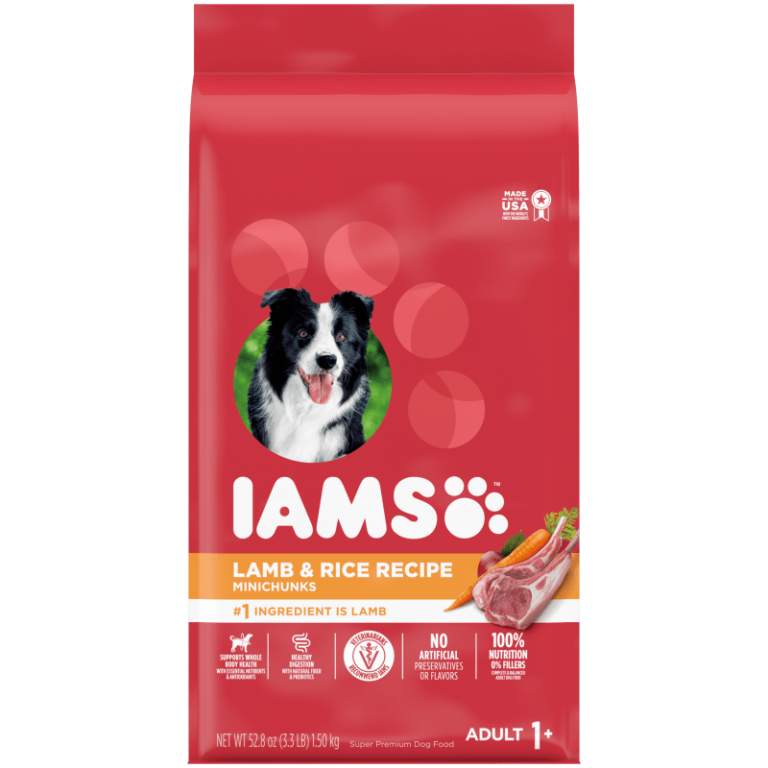When it comes to the health of our beloved dogs, we always want to ensure that they receive the best care possible. There are times when our furry friends may experience certain health conditions that require special attention and treatment. One such condition is the need for a natural diuretic. In this article, we will explore what a diuretic is, how it works, and why dogs may need a natural diuretic. We will also discuss some common natural diuretics for dogs and how to give them to our furry companions. Finally, we will cover any risks or side effects associated with the use of natural diuretics and provide some concluding remarks on supporting our dog’s heart health naturally.
What is a diuretic and how does it work?
A diuretic is a substance that promotes diuresis, which is the increased production of urine. Diuretics work by increasing the excretion of water and electrolytes from the body. They help the kidneys eliminate excess fluids and can be used to treat a variety of conditions such as heart failure, hypertension, and kidney disease. There are different types of diuretics that can be used depending on the specific needs of the individual.
Diuretic definition
A diuretic is a medication or substance that increases urine production in the body. It helps remove excess fluid from the body, which can be beneficial for various health conditions.
How do diuretics work?
Diuretics work by altering the way your kidneys filter salt and water from your blood. By increasing the excretion of sodium and water, diuretics help reduce the amount of fluid in your blood vessels. This helps lower blood pressure and relieve edema, which is the swelling caused by excess fluid in the body’s tissues.
Types of diuretics for dogs
There are different types of diuretics that can be used for dogs, including loop diuretics, thiazide diuretics, and potassium-sparing diuretics. Loop diuretics, such as furosemide, are commonly used to treat congestive heart failure in dogs. Thiazide diuretics, like hydrochlorothiazide, can be used for conditions such as hypertension and edema. Potassium-sparing diuretics, such as spironolactone, help maintain potassium levels in the body while promoting diuresis.
 Why would a dog need a natural diuretic?
Why would a dog need a natural diuretic?
There are several reasons why a dog may need a natural diuretic. One common reason is heart failure, a condition in which the heart is unable to pump blood effectively. Diuretics can help remove excess fluid from the body, reducing the workload on the heart and relieving symptoms of congestion. Using natural diuretics in these situations can provide added benefits over traditional medications.
Diuretics for heart failure in dogs
Heart failure is a common condition in dogs, especially in certain breeds. It can lead to symptoms such as coughing, difficulty breathing, and fluid accumulation in the abdomen or limbs. Diuretics can be prescribed by a veterinarian to help remove excess fluid from the body and alleviate these symptoms.
Benefits of using natural diuretics
Using natural diuretics for dogs with heart failure can provide several benefits. Natural diuretics, such as hawthorn and dandelion, can help support heart health and reduce fluid buildup without the potential side effects commonly associated with traditional medications. They can also provide additional nutritional benefits that promote overall well-being in our furry friends.
Common heart problems in dogs
There are several common heart problems that can affect dogs, including congestive heart failure, dilated cardiomyopathy, and mitral valve disease. These conditions can be managed with the help of diuretics, along with other medications and lifestyle changes recommended by a veterinarian.
What are some natural diuretics for dogs?
There are several natural diuretics that can be beneficial for dogs. One such natural diuretic is hawthorn. Hawthorn has been used for centuries for its medicinal properties, including its diuretic effects. It helps promote urine production and improve blood flow in the body. Another natural diuretic is dandelion. Dandelion acts as a gentle diuretic and supports kidney function. It is rich in vitamins and minerals and can be used as a natural remedy for various health conditions in dogs.
Hawthorn as a natural diuretic
Hawthorn is a natural diuretic that can benefit dogs with heart problems. It helps promote diuresis, improve heart function, and support overall cardiovascular health. Hawthorn can be given to dogs in various forms, such as capsules, tinctures, or teas. The recommended dosage should be determined by a veterinarian based on the specific needs of the dog.
Dandelion for diuretic purposes
Dandelion is another natural diuretic that can be beneficial for dogs. It helps promote diuresis, detoxify the body, and support liver and kidney health. Dandelion can be added to your dog’s diet in various forms, such as dried leaves, tinctures, or supplement powders. It is important to consult with a veterinarian to determine the appropriate dosage for your dog based on their size and overall health condition.
The holistic approach to diuretics
When considering the use of natural diuretics for dogs, it is important to take a holistic approach. This means considering the dog’s overall health condition, diet, lifestyle, and any other medications they may be taking. Consulting with a veterinarian who is experienced in holistic treatment options can help ensure that the natural diuretic is used safely and effectively for your furry companion.
How to give your dog a natural diuretic?
Administering a natural diuretic to your dog requires careful consideration of the recommended dosage and method of delivery. It is always best to consult with a veterinarian before starting any new treatment or introducing natural remedies to your dog’s routine.
Recommended dosage of natural diuretics
The recommended dosage of natural diuretics can vary depending on the specific product and the dog’s size and condition. It is important to follow the instructions provided by the manufacturer or consult with a veterinarian to determine the appropriate dosage for your dog. Starting with a lower dosage and gradually increasing it as needed can help minimize any potential side effects.
Potassium supplementation
When using diuretics, it is important to consider the dog’s potassium levels. Diuretics can sometimes cause a loss of potassium in the body, which can be detrimental to overall health. Potassium supplementation may be necessary to maintain proper electrolyte balance. Your veterinarian can advise you on the appropriate dosage and type of potassium supplement for your dog.
Considerations based on the dog’s breed
It is important to consider the specific needs of your dog’s breed when administering a natural diuretic. Some breeds may have a higher risk of certain health conditions, such as congestive heart failure, and may require different dosages or treatment approaches. Consulting with a veterinarian who is knowledgeable about your dog’s breed can help ensure the best course of action.
Are there any risks or side effects?
While natural diuretics are generally considered safe for dogs, there can be some risks and potential side effects. It is important to be aware of these and monitor your dog closely when introducing a natural diuretic into their routine.
Possible side effects of natural diuretics
Sometimes, dogs may experience side effects from natural diuretics, such as increased urination, thirst, or gastrointestinal upset. If you notice any unusual symptoms or changes in your dog’s behavior, it is important to consult with a veterinarian. They can help determine if the natural diuretic is suitable for your dog or recommend alternative options.
Consulting with a veterinarian
Before starting any natural diuretic or making any changes to your dog’s treatment regimen, it is important to consult with a veterinarian. They can evaluate your dog’s health condition, review any medications they are currently taking, and provide guidance on the use of natural diuretics.
Monitoring kidney function
Diuretics can put additional strain on the kidneys, especially if used for an extended period. It is important to monitor your dog’s kidney function regularly when using a natural diuretic. Your veterinarian can perform blood tests to assess kidney function and determine if any adjustments to the treatment plan are necessary.
Conclusion
Supporting your dog’s heart health naturally
The use of natural diuretics can be a helpful addition to the treatment plan for dogs with heart conditions. They can help remove excess fluids from the body and support overall cardiovascular health. However, it is important to consult with a veterinarian before starting any new treatment or introducing natural remedies to ensure the safety and efficacy for your furry companion.
Choosing the right natural diuretic for your dog
When choosing a natural diuretic for your dog, consider their specific needs and health condition. Natural diuretics, such as hawthorn and dandelion, can provide additional benefits beyond promoting diuresis. Consult with a veterinarian who is experienced in holistic treatment options to determine the best course of action for your dog.
Additional tips for managing heart conditions in dogs
In addition to using natural diuretics, there are several other strategies that can help manage heart conditions in dogs. These include maintaining a balanced diet, regular exercise, minimizing stress, and ensuring proper medication management. Working closely with a veterinarian can ensure that your dog receives the comprehensive care they need to live a happy and healthy life.
Natural Diuretic for Dogs – Frequently Asked Questions
1. What is a natural diuretic for dogs?
A natural diuretic for dogs is a substance that helps increase urine production, promoting the excretion of excess fluids from the body. It can assist in reducing fluid retention and managing conditions like congestive heart failure, kidney problems, and other issues.
2. How can diuretics benefit dogs with heart failure?
Diuretics are commonly used to manage congestive heart failure in dogs, as they help eliminate excess fluids from the body. By reducing fluid buildup, diuretics can alleviate symptoms like difficulty in breathing, coughing, and swelling of the abdomen.
3. Are there any natural herbal diuretics for dogs?
Yes, there are natural herbal diuretics that can be beneficial for dogs. Some commonly used herbal diuretics for dogs include hawthorn and dandelion. These herbs have diuretic properties and are believed to support heart health and fluid balance.
4. Can I give my dog diuretic remedies without consulting a veterinarian?
It is always recommended to consult a veterinarian before giving your dog any diuretic remedies. They can assess your dog’s specific needs, evaluate any underlying health conditions, and provide the appropriate advice and dosage recommendations for safe administration.
5. Are there any natural diuretic foods for dogs?
Yes, some natural diuretic foods may help support fluid balance in dogs. These include foods rich in potassium, such as leafy greens, bananas, and coconut water. However, it is important to consult with a veterinarian to ensure the proper inclusion of these foods in your dog’s diet.
6. Can all dog breeds benefit from natural diuretics?
Yes, natural diuretics can potentially benefit dogs of all breeds. However, it is crucial to remember that every dog is unique, and their individual health conditions should be taken into consideration. Consultation with a veterinarian will help determine the suitability and effectiveness of natural diuretics for your specific breed.
7. Can diuretics help dogs with liver disease?
Diuretics may be used in certain cases of liver disease in dogs to manage fluid retention and reduce edema. However, the use of diuretics in such cases should be evaluated and determined by a veterinarian based on the dog’s overall health condition and specific liver disease diagnosis.
8. How can natural diuretics be used to support heart health in dogs?
Natural diuretics can play a crucial role in supporting heart health in dogs. Diuretics work by increasing the urine output, which helps to reduce fluid retention and prevent the buildup of excess fluid in the body. This is particularly important in dogs with heart conditions, as fluid retention can place additional stress on the heart and contribute to the development of congestive heart failure. Natural diuretics such as dandelion root, parsley, and celery seed can be incorporated into a dog’s diet to promote healthy kidney function and encourage the elimination of excess fluid. These natural remedies can help to regulate the fluid balance in the body and prevent fluid accumulation in the lungs and other tissues. However, it is important to consult with a veterinarian before using any natural diuretics, as they may interact with certain medications or have adverse effects on the dog’s health. Additionally, regular veterinary check-ups and monitoring of the dog’s heart health are essential for ensuring the effectiveness and safety of using natural diuretics.


 Why would a dog need a natural diuretic?
Why would a dog need a natural diuretic?





